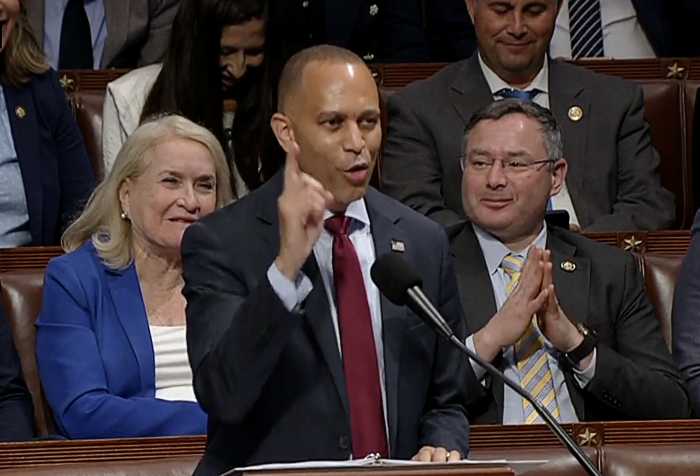By Adam Kramer
For Duskiewicz, the president of the Creedmoor Civic Association, and Aquilino, the president of the Rocky Hill Civic Association, the illegal conversion of homes is a major problem in their neighborhood as it is for many areas throughout the borough because it taxes the city services and poses a fire hazard.
“We are trying to get the word out that this will not be tolerated in our area,” said Duskiewicz, whose civic covers Moline Street to the west, 88th Avenue to the north, the Cross Island Parkway service road to the east, and Braddock Avenue to the south. “The effect of the conversions is more people are crammed into the area, less parking, overcrowded schools, sanitation and water pressure.”
He said converted homes need to have fire walls built into the house to prevent a fire in the basement apartment from spreading to the other apartments in the home.
A New Hyde Park, L.I., real estate agent was selling a home at 88-48 237th St. for the owner when Duskiewicz and Aquilino found out and visited during an open house.
Duskiewicz said the agent told them the house had a certificate of occupancy for two families, but it was being used for one family. He said it was built to accommodate one family on the ground floor and another on the second floor.
When questioned about the high asking price, Duskiewicz said, they were told they could rent out the basement to meet the mortgage payments. The asking price for the home was $329,000. A tour of the cellar revealed a kitchen, bath, living room and bedroom, he said, which constituted a third possible residence in the home.
A woman who answered the phone at the real estate agency and refused to give her name said the firm was not handling the sale anymore. She said the owner was selling the house. She said she did not know about the basement apartment and was not aware if it was rented.
On Dec. 11 the city Department of Buildings issued a violation to the owner of the home for having an apartment in the cellar without a permit, said Paul Wein, a spokesman for the agency.
The owners of the real estate agency were on vacation and could not be reached for comment before presstime.
According to Duskiewicz, an illegal apartment can bring in between $550 and $750 per month in rent.
“There are a lot of them going on,” said Aquilino, whose civic covers the area from Union Turnpike to Braddock Avenue and 229th Street to Winchester Boulevard to Pontiac Street in Hollis Hill. “We are trying to nip this in the bud before it becomes too pervasive.”
Aquilino said the people in his community have worked hard to keep their homes and newcomers to the area should not overextend themselves economically when buying a home, forcing them to convert a single-family home into a two-family house.
“Another problem is two or three families rent a home from an owner who lives somewhere else,” he said. “It is being used as a cash cow. It hurts the community.”
Nagassar Ramgarib, president of the Queens Village Civic Association, said the blame for the rise in illegal apartments falls squarely on the shoulders of the Department of Buildings. He said corruption and cutbacks have slowed down building inspections.
“It is ruining the neighborhood,” he said. “It is rampant. I hope the trend reverses sooner or later.”
Duskiewicz said if residents in any neighborhood see or know of an illegal apartment, they should contact their civic association, which will report the problem to the Department of Buildings. He said in the past when a person reported a problem to the Department of Buildings, his name was sometimes revealed to the owner of the illegal home.
But now, he said, the name of anyone who reports a problem will be held in the strictest of confidence.


































